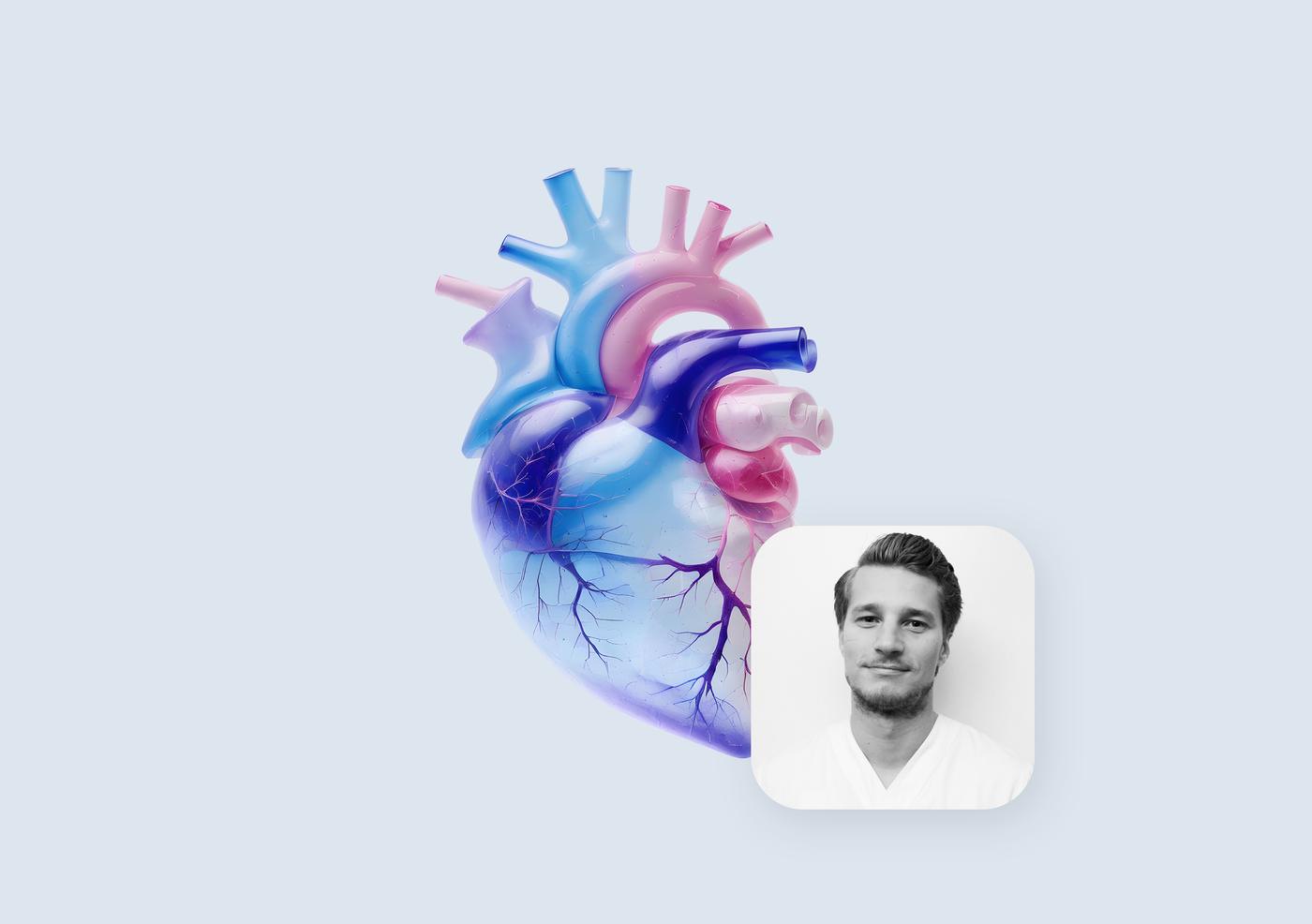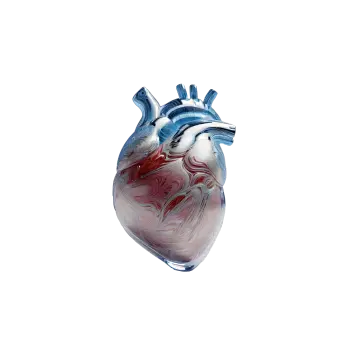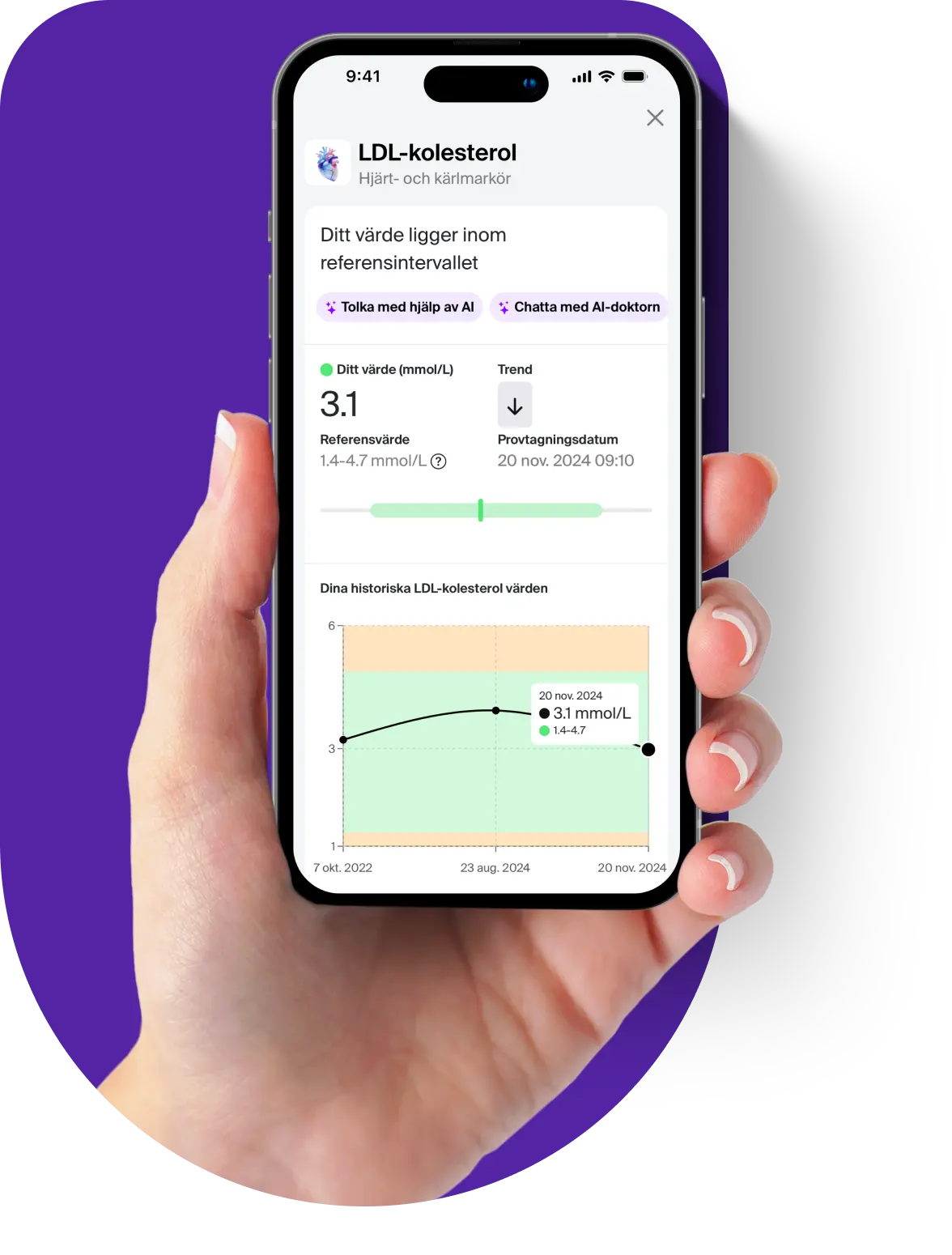Investigation by specialist doctor - Cholesterol profile
Research shows that both healthy and people with cardiovascular disease benefit from lowered cholesterol levels. Within traditional healthcare, however, the healthy person rarely gets any help to optimize their cholesterol values. Which means that high cholesterol levels are only treated after a person has suffered from cardiovascular disease. This may be due in part to limited resources in healthcare, but also to a lack of knowledge and awareness among the public and doctors about the importance of lowering high cholesterol levels.
The health check-up is designed to give the cardiologist the conditions to assess your current cholesterol profile, identify any abnormalities and give you any advice for treatment. The research on blood fats is constantly developing and has led to changed recommendations on what are considered to be optimal cholesterol values according to Swedish and European guidelines. Now it is known that LDL cholesterol, the bad cholesterol, should be below 3.0 to avoid risks. If your LDL cholesterol exceeds this value, the risk of atherosclerosis in the blood vessels increases, which in the long run increases the risk of serious cardiovascular diseases such as heart attack and stroke.
Statement from specialist doctor
Marcus Hjort is a heart specialist in cardiovascular diseases and has also conducted research focusing on biomarkers in acute coronary syndromes. Marcus focused particularly on heart attacks and during the years as a specialist in cardiology at Danderyd hospital, he has marveled at how undertreated elevated cholesterol levels and its risks are.
What help is there to get?
Unfortunately, high cholesterol levels are usually not treated until after a person has suffered from cardiovascular disease – ie when the damage has already been done. This may be due in part to limited resources in healthcare, but also to a lack of knowledge and awareness among the public and doctors about the importance of lowering high cholesterol levels. Provided the specialist doctor believes that your values should be treated, you will be offered a free consultation to discuss possible treatment.
Optimize your cardiovascular health by monitoring your cholesterol levels
Cardiovascular disease, often linked to elevated cholesterol levels, is one of the leading causes of global death. According to European guidelines, half of the population in the Western world has too high cholesterol levels. Lowering cholesterol levels significantly reduces the risk of heart attack and stroke. For a 45-year-old with slightly elevated cholesterol levels, there is a 30% risk of suffering from cardiovascular diseases, and processes of atherosclerosis begin in childhood and increase with age. Through regular checks of your cholesterol values, you can detect any deviations early and take measures to prevent potential health risks.


















































